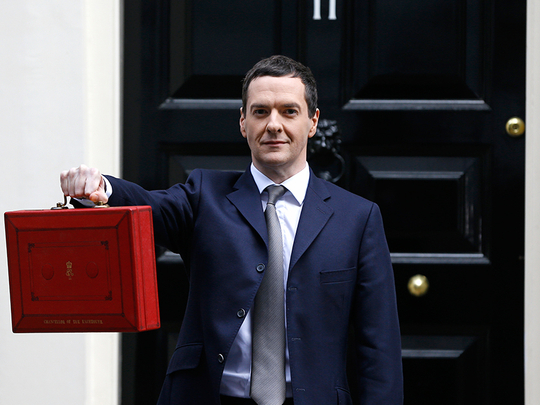
London: The Conservative-led UK government announced a series of mini-giveaways Wednesday that it hopes will boost support ahead of what is expected to be one of the tightest general elections in generations.
In his final budget statement ahead of the May 7 general election, Treasury Chief George Osborne focused any largesse he generated on wannabe homebuyers, pensioners, drivers and frequenters of the British pub. The overall cost of the measures, he said, was more than offset by other steps such as reducing tax avoidance and raising a levy on banks.
“We set out a plan. That plan is working and Britain is walking tall again,” he told a packed House of Commons.
Citing independent forecasts prepared for the budget, Osborne said the UK economy is set to grow faster than anticipated this year despite downgrades to global growth and trade. He said the Office for Budget Responsibility thinks the UK will grow by 2.5 per cent this year, up slightly from its last prediction of 2.4 per cent.
Osborne also said that the U.K.’s public finances are on the mend and that the budget will be in surplus by 2018-19.
The Labour Party, the main opposition, claims the government’s deficit-reduction program over the past few years, which has led to big cuts in spending in some departments, has disproportionately hit the poor and working class people and is damaging the long-term health of the country.
“It’s a recovery for the few from a government of the few,” Ed Miliband, Labour’s leader, said in response.
Osborne’s statement comes ahead of the general election, which opinion polls say is too close to call, with Osborne’s Conservative Party neck-and-neck with the Labour Party. As things stand, no party is anticipated to achieve a majority in the election. That would mean deals with smaller parties will have to be made after the election for a government to be formed.
As well as the current junior coalition partner, the Liberal Democrats, there’s a plethora of other parties set to make a mark in the election, including the UK Independence Party and the Scottish National Party.










